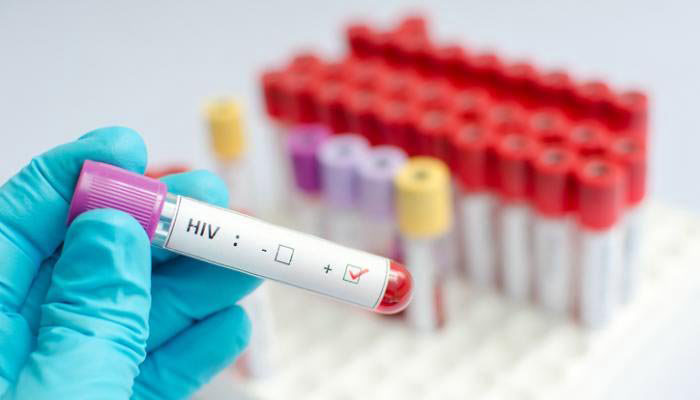Larkana’s Ratodero HIV report reveals startling facts
70% of HIV patients who test positive for HIV in Larkana's Ratodero where under the age of 5
May 17, 2019

KARACHI: A report by the Director General (DG) Health Sindh Dr Masood Solangi on the spread of the human immunodeficiency virus (HIV) in Larkana’s Rotodero district has revealed startling facts.
According to the report, over 14,000 people in Rotodero district were screened out of which 534 tested positive for the HIV virus. Of these patients, 270 were female and 264 male.
The age group distribution revealed the most affected age group was 2-5 years with 294 (55.05%) cases followed by age group 6-15 years with 100 (18.7%) cases.
According to the Program Manager of Sindh’s AIDS Control Program Dr Sikander Ali, the prime object for the spread of the virus was the reuse of syringes at local clinics and districts health hospitals.
DG Health Dr Masood Solangi further said that screening is going on at THQ Hospital Ratodero by SACP.
Health Department and Health care commission with the support of District Administration have sealed unauthorized laboratories, blood banks and clinics which are being run by quacks.
"Soon we will Establish HIV/AIDs ART Treatment Center at Shaikh Zaid children Hospital Larkana," said Dr Solangi.
Health experts have urged the government and health department of Sindh to focus on treatment as well because after the diagnosis of HIV virus it’s mandatory to focus on treatment.
Last month, police arrested a doctor in connection with the spread of the HIV virus in Larkana’s Rotodero district. Police said Dr Muzaffar Ghanghar was an employee of a public hospital and an HIV patient himself.
Larkana continues to top the list of districts most affected by HIV in Sindh, with the total number of AIDS patients in Larkana at more than 2,400.
In total, 76.1 million people worldwide have been infected with HIV, since the epidemic started in the 1980s. Some 35 million have died.
As yet, there is no HIV vaccine or cure, and infected people rely on lifelong anti-retroviral therapy to stop the virus replicating.
Without treatment, HIV-infected people go on to develop AIDS, a syndrome that weakens the immune system and leaves the body exposed to opportunistic infections such as tuberculosis, and some types of cancer.
Treatment carries side-effects and is costly, but allows infected people to be healthier for longer.











